I want to use booleans as state storage.
In order to do that, I need to be able to change their state from difference places in the project.
To do that, I need somewhere to store them, and a way to pass a reference to them.
I've tried storing them as static variables in a GameManager, but passing references to these only seems to pass the value of true of false, not a reference.
How do I achieve this goal of having a passable boolean reference I can change the state of it from any part of the project?
UPDATE:
This can't be the best way to do this, but this achieves the goal of having a bunch of state booleans that I can use around the game world:
class GameManager {
static let sharedInstance = GameManager()
var previewAudioIsON: Bool = false
var previewVisuaIsOn: Bool = false
var timerDisplayIsOn: Bool = false
var quickStartIsOn: Bool = false
func touchedPreviewAudioButton() -> Bool {
if previewAudioIsON { previewAudioIsON = false}
else { previewAudioIsON = true }
return previewAudioIsON
}
func touchedPreviewVisualButton() -> Bool {
if previewVisuaIsOn { previewVisuaIsOn = false }
else { previewVisuaIsOn = true }
return previewVisuaIsOn
}
func touchedTimeDisplayButton() -> Bool {
if timerDisplayIsOn { timerDisplayIsOn = false }
else { timerDisplayIsOn = true }
return timerDisplayIsOn
}
func touchedQuickStartButton() -> Bool {
if quickStartIsOn { quickStartIsOn = false }
else { quickStartIsOn = true }
return quickStartIsOn
}
}
